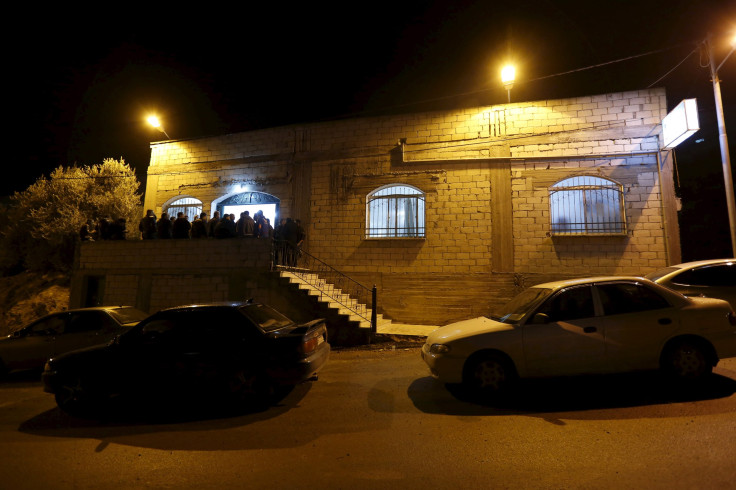Jordan Says Mass Killer Was Not Jihadist But Mentally Disturbed

AMMAN, Jordan (Reuters) — Jordan said Saturday that a police officer who went on a shooting spree, killing five people including two American police trainers, was psychologically disturbed and not linked to any radical Islamist group. Interior Minister Salameh Hamad told reporters the 29-year-old officer, Anwar Abu Zeid, had faced financial problems and was under severe mental stress before he began to fire at foreign trainers last Monday at the U.S.-funded King Abdullah Training Center near Amman.
"I announce to you that this incident was personal and isolated, and is not linked to any group whatsoever. We have no suspicions that he was linked to any extremist group," Hamad said. "It is rooted in the shooter’s psychological and financial issue ... He was in a stressed mental position," Hamad said.
Security sources had earlier told Reuters on condition of anonymity there was growing evidence of radical Islamist influences on Abu Zeid.
The Americans killed were former members of the U.S. military and were contracted to train police from regional allies such as Iraq and the Palestinian territories. A South African trainer and two Jordanian translators were also killed.
The killings took place on the 10th anniversary of al Qaeda suicide bombings that targeted three luxury hotels in the capital and killed 57 people. No group has claimed responsibility for Monday's attack.
Abu Zeid, a pious young man, had grown more religious in recent months and told close relatives that he wanted to leave his job because he was unable to tolerate working in an environment where American defense personnel were present, security sources said. Senior officers confirmed that Abu Zeid had wanted to resign and had smuggled an AK-47, a pistol and a large cache of ammunition into the compound from his home in northern Jordan on the day of the shooting. He performed prayers before heading to a canteen where he sprayed bullets randomly at those who were there, they said. He was later shot by police after he fled outside.
Diplomats say the fact that the attacker came from one of the native tribes in Jordan that form the backbone of the security forces is a particular blow for the kingdom's Hashemite dynasty, as well as being a major security breach.
Some tribes have become increasingly disgruntled over perceived corruption and feel they are being marginalized economically, posing what security experts see as an additional threat to a country long worried about possible attacks by militant Islamists.
Almost 2,000 people attended Abu Zeid's funeral Thursday in his hometown, with scores chanting "Death to America" and accusing the authorities of a cover-up over what really happened.
The decades-old Arab-Israeli conflict and turmoil along Jordan's borders with Israel provide fertile ground for Islamic militancy, and mistrust of the West has long been fueled by a perceived U.S. bias toward Israel.
Jordan is an major ally of Washington in the U.S.-led campaign against Islamic State group militants who hold large areas of neighboring Syria and Iraq. Its stepped-up military role in this campaign has angered many in Jordan who believe it serves the enemies of their Muslim faith.
(Reporting by Suleiman Al-Khalidi; Editing by Digby Lidstone)
© Copyright Thomson Reuters 2024. All rights reserved.





















